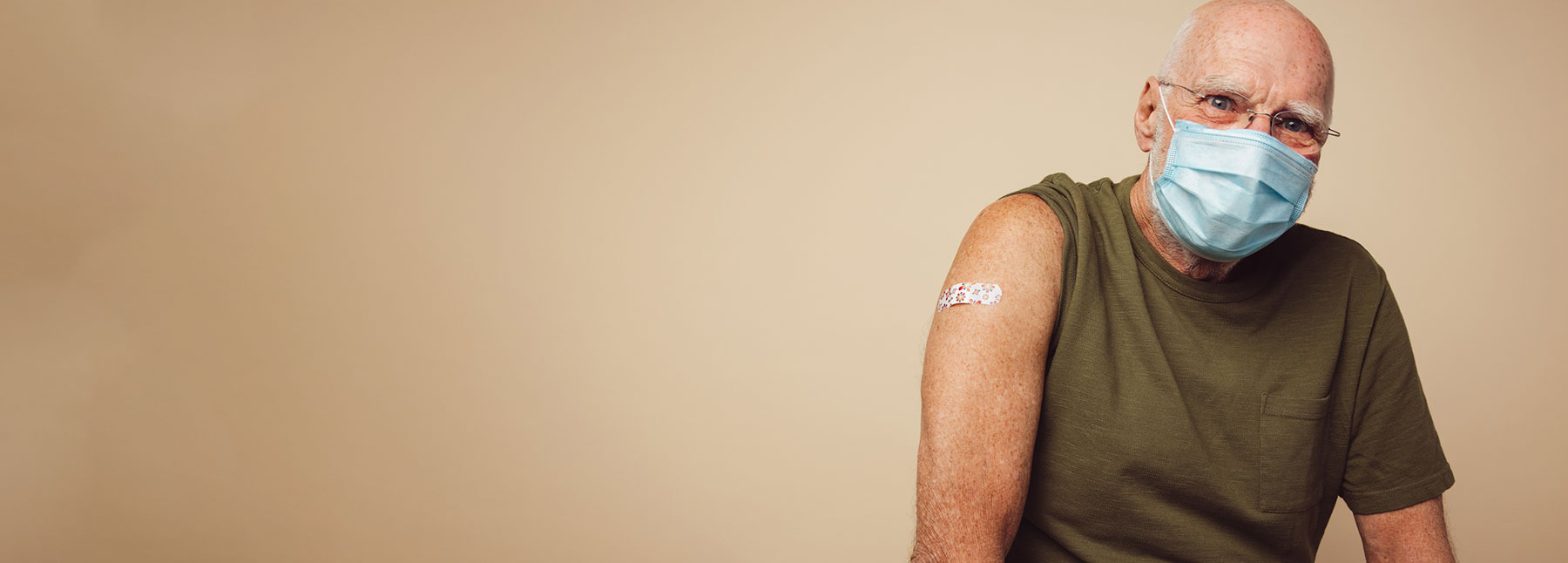Today, more than ever, we are aware of the enormous impact that infectious disease can have on the human population. Over the past few months we have witnessed the devastating impact of COVID-19 across the world and unfortunately it looks set to continue for some time.
This World Immunisation Week, the aim is to promote the use of vaccines as a successful and cost-effective way to protect people of all ages against disease and ultimately save millions of lives.
As a healthcare professional I have seen first-hand the positive impact that prioritising disease prevention over treatment can have. With inoculation acting as a preventive barrier to disease in the first place, it is much less onerous on both the individual and our healthcare systems, than treating the disease after it has been transmitted.
Right now, scientists across the globe are working hard to produce a vaccine for COVID-19 that will protect against future infection of the virus. The pain-staking process involved in developing and testing a vaccine has been brought into sharp focus. As the world awaits a breakthrough we are reminded how lucky we are to live at a time when so many potentially fatal diseases can be successfully protected against, thanks to vaccination programmes.
MMR & HPV
As it stands, there are a number of vaccines available globally for a variety of diseases, many of which are provided to members of the public through national immunisation programmes. We are more familiar with some than others, for example, those which are necessary before travelling to tropical countries, the measles mumps and rubella (MMR) vaccine and the human papillomavirus (HPV) vaccine, which has the potential to wipe out cervical cancer over the coming years.
The MMR jab is a particularly strong example of how effective vaccines can be in eradicating disease and what can happen if people choose not to have them.
Until recently, measles had been successfully eradicated in many parts of the world, but a decline in the uptake of the vaccine led to what the World Health Organisation (WHO) described as an ‘epidemic' in several countries late last year.
The UK lost its measles-free status in the past nine months, due - in part - to a decrease in vaccination rates, as people chose not to have the MMR vaccine administered to their children following campaigns warning of alleged and mostly false perils of immunisation. While earlier this year, a severe measles outbreak in the Democratic Republic of Congo led to over 6,000 deaths there.
In countries like the UK, the disease has now been re-introduced into the population, and it will be much harder to prevent it from spreading than it would have been had everyone been inoculated. Proof of the valuable impact a vaccine can have - and what can happen when people decide not to avail of it.
NGOs
We should consider ourselves lucky that vaccinations are so readily available for so many illnesses, particularly when there are still nearly 20 million children in the world today who are not getting the vaccines they need. This is despite the crucial work of many non-governmental organisations (NGOs) who help to deliver vital immunisation programmes to those living in developing countries and remote areas where there's little or no access to vaccines through the country's healthcare system.
Each year, we urge people to get the flu vaccine as we know it can reduce the spread of the virus as well as the number of associated fatalities. We need to think the same way about other vaccines and see them as an effective way to protect our communities.
The global COVID-19 pandemic we are currently witnessing is proof of the continuous need for new vaccines to be developed and delivered to help prevent future health crises. Vaccines work for all but can only be completely effective for all if everyone chooses to be vaccinated.
This article was first published in COVER magazine

















